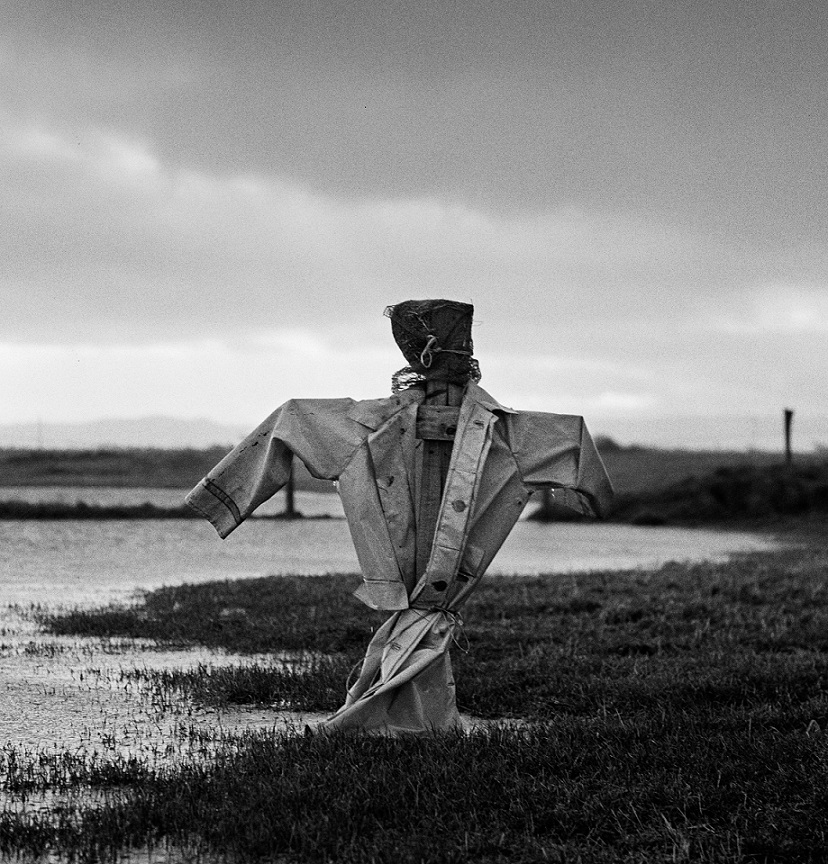Nostalgia is one of those words that have slipped away from their moorings, tending now to being used loosely for wistful, dewy-eyed sentimentality whereas its ancient Greek origins suggest a more serious state of mind.
 Text: Sean Sheehan
Text: Sean Sheehan
Photos: Steve Pyke
From the Greek nostos (return home) and algos (pain), the nostalgia that Odysseus experienced when far from home and with little hope that he could ever return was a severe home-sickness, a deep melancholy that the Greek poet Seferis evoked when he wrote: “I whispered: memory hurts wherever you touch it”.
The words of Seferis earn their place on the first page of “I could read the sky”, an emigrant’s odyssey of remembrance and the painful awareness of what is left behind.
The emigrant in “I could read the sky” is one of the hundreds of thousands of Irish men and women who left their country seeking a living in England or America.
 They had been doing so since the Famine and continued to do so long after most of the island of Ireland achieved self-rule after the War of Independence (16% of the population departed in the 1950s).
They had been doing so since the Famine and continued to do so long after most of the island of Ireland achieved self-rule after the War of Independence (16% of the population departed in the 1950s).
The narrator-emigrant comes to England with skills – cutting turf, thatching a roof, shearing sheep, reading the sky for weather – but unrewarding work peeling potatoes, bagging beet, dismantling World War II air raid shelters, laying slabs and railway lines is what awaits him.
In Portsmouth for a job laying gas lines, he leaves the pub one night and finds himself walking behind someone:
 “A red-haired man with mud on his boots, the trousers falling off him, the paper rolled up in his jacket pocket and him taking the two sides of the pavement from all the drink and I know it is me.”
“A red-haired man with mud on his boots, the trousers falling off him, the paper rolled up in his jacket pocket and him taking the two sides of the pavement from all the drink and I know it is me.”
Having left their homeland on their own and never finding a partner, they carried the absence with them. Familiar place names are evoked with tenderness – Ballinaclash. Ardnageeha. Killycolpy, Knocksouna, Glenaar – while ones in England leave him cold: “The names I never took to. There isn’t much movement in them and they are closed off at both ends. They remind me of iron.”
Memories of what has been left behind become like shards of glass in the skin and when he lists things he cannot do (‘Acknowledge the Queen. Abide loud voices. Perform the manners of greeting and leaving…’) the final item is “Stop remembering”.
 This, though, is not a tale of self-pity – just the story of a piercing, tragic resignation that can be the lot of the emigrant who senses the value of what was left behind.
This, though, is not a tale of self-pity – just the story of a piercing, tragic resignation that can be the lot of the emigrant who senses the value of what was left behind.
It wrings the heart, as do the photographs by Steve Pyke, and the preface by John Berger records the book’s unique blend of words and haunting photography.
The book was first published in 1997 and this new edition, compact and complete unto itself, is priceless for the way it contains and conveys an immigrant’s experience.
“I could read the sky”, by Timothy O’Grady and Steve Pyke, is published by Unbound.
(Photos by Steve Pyke, supplied by the publisher and authorised for publication)












.jpg)












